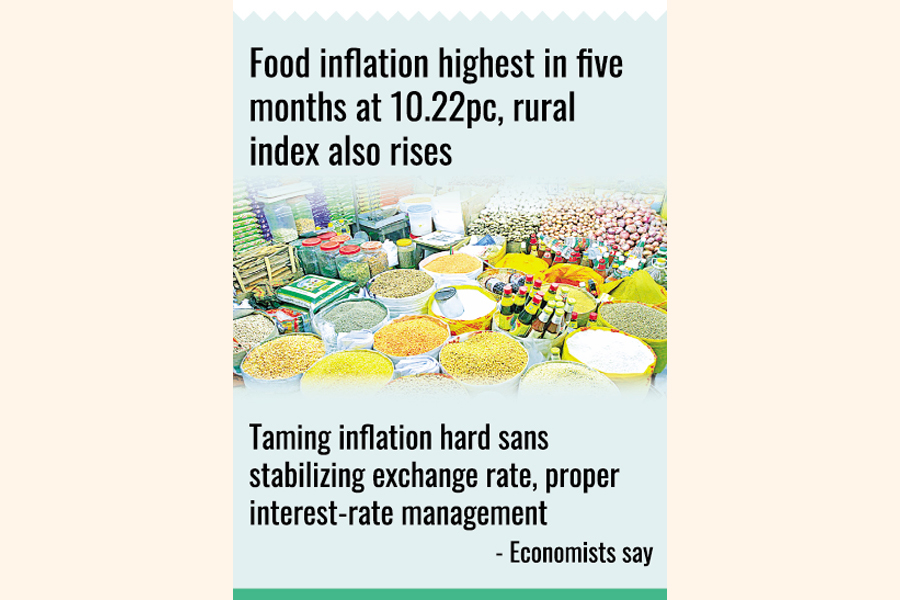
Published :
Updated :

Overall inflation in Bangladesh edged down to 9.74 per cent in April although food-and rural inflation indices showed further rise, latest official statistics show.
Rural people faced higher inflationary pressures in recent months as the inflation rate there had risen for straight two months to April, officials said Monday.
Despite the slight fall in national inflation on a point-to-point basis, the rate in the rural areas rose by 0.24 percentage points to 9.92 per cent last month, the highest in eight months, Bangladesh Bureau of Statistics (BBS) data released on the day showed.
The highest inflation in the rural Bangladesh was recorded in August last year (2023) at 9.98 per cent, as BBS count.
"Since both food and non-food inflation in rural Bangladesh had maintained a steep rise in the last couple of months, the inflation there was on an upturn despite a fall in the national level," a BBS official told the FE correspondent.
In the previous month of March, the inflation rate in the rural Bangladesh was recorded 9.68 per cent.
The inflation rate on a point-to-point basis at national level declined to 9.74 per cent in April from 9.81 per cent in the previous month, the data showed. The rate a year ago in April 2023 was recorded 9.24 per cent.
Consumers go on paying higher on food account amid price rises, as the food inflation at national level climbed by 0.35 percentage points to 10.22 per cent in April -- the highest in five months.
The rate of non-food inflation on a point-to-point basis, however, edged down to 9.34 per cent in the past month from 9.64 per cent in March, BBS data showed, contributing to the slight fall overall.
Government's several efforts so far also could make little impact on the inflationary pressures on consumers as the Consumer Price Index (CPI) has maintained a higher trend for more than a year now.
According to the latest BBS data, although the inflation rate in the rural Bangladesh had increased over the last two months, in the urban areas it had decreased in the same period.
In the urban areas, the rate of inflation last month was recorded at 9.46 per cent, down 0.48 percentage points from that in the previous month of March.
Nationally, the food inflation increased to 10.22 per cent in April from that of 9.87 per cent in March, the BBS data showed.
Meanwhile, the food inflations rate in the villages was recorded at 10.25 per cent in April from that of 9.86 per cent in March this year.
The non-food inflation here also increased to 9.60 per cent in April from that of 9.41 per cent in the previous months.
In the urban areas, although the food inflation increased a little bit but the non-food inflation rate dropped significantly. The non-food inflation fell by 0.70 percentage points to 9.01 per cent from 9.71 per cent in March in the towns.
Meanwhile, for the straight 13 months, Bangladesh couldn't tame the inflation below 9.0 per cent as it is almost close to the double-digit club after fresh food-price spirals over the last couple of months, analysts said.
The higher inflationary pressures "have already bitten middle-and lower-middle class and poor people as their expenditures for buying necessary items are eating up the lion's share of their wages and monthly incomes", they said.
Economists say it is hard to tame the wayward inflation without stabilizing the exchange rate and a proper interest-rate management.
The CPI is not going down over the months as the prices of essential communities, including rice, meats, fishes, vegetables and cooking oils are still high on the kitchen market.
kabirhumayan10@googlemail.com


 For all latest news, follow The Financial Express Google News channel.
For all latest news, follow The Financial Express Google News channel.